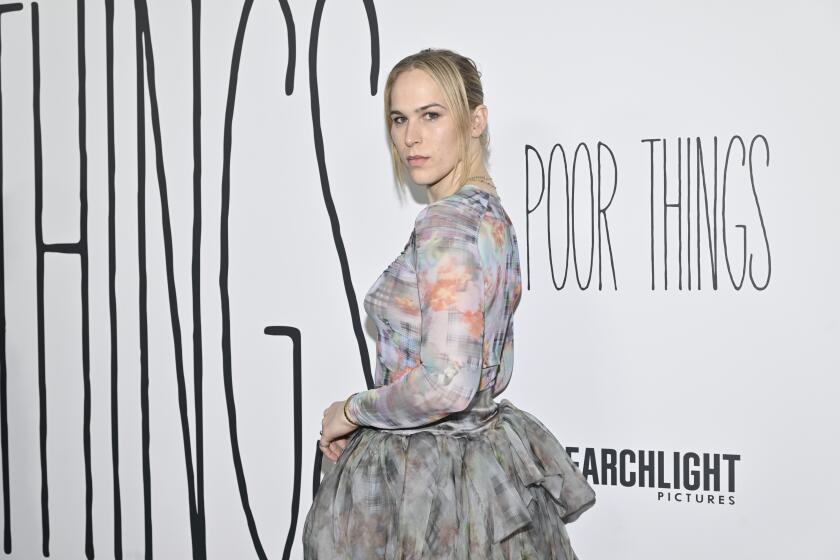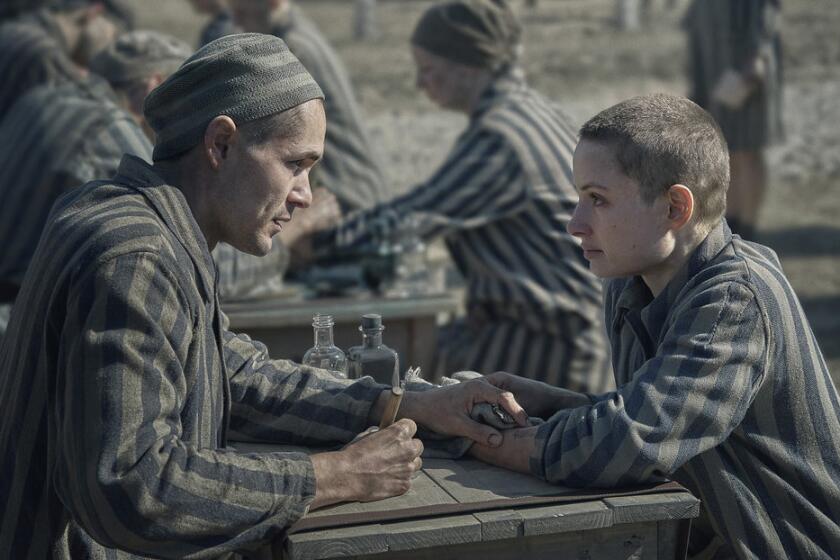PERSPECTIVE ON TELEVISION : Prime Time Goes Politically Correct : Hollywood, not content to entertain, pushes its liberal agenda on the masses; the result is ‘advotainment.’
The nation’s television critics who descend on Los Angeles this month to preview the new prime-time offerings will see a fantasy world derived less from the lives of the viewing audience than from Hollywood’s political agenda. Prime-time fare is mutating into a kind of “advotainment” that places entertainment in the service of political advocacy. Given the current political cast of the creative community, there is no doubt about the new direction of prime time: TV is going PC.
Examples of “politically correct” programming are legion. Last season, viewers of “L.A. Law” learned that the U.S. Army indiscriminately butchered Panamanian civilians during the 1989 invasion. On “thirtysomething,” angst-ridden Michael quit his advertising agency because it blacklisted an actor opposed to the Gulf War. Next season promises more of the same, as the “new history” filters down to the small screen. On “I’ll Fly Away,” a white district attorney and his black housekeeper will fight racism in the 1950s South. On “Home Front,” returning World War II veterans and their wives will confront job discrimination, sexism and changing social mores.
Sometimes TV’s PC sensibility is expressed in plot lines based on headlines. Thus, “Shannon’s Deal” featured a CIA-run drugs-for-weapons scheme that recalled the Iran-Contra scandal. One of “My Two Dads” went to jail for dumping pollution into an oil company’s toilets, to protest against the way they “treat our world like a toilet.” Other times the producers’ politics are built right into a lead character, like “Rosie O’Neill’s” Establishment-fighting public defender. Finally, PC politics pop up in lines of dialogue. “Murphy Brown” calls Jesse Helms “an embarrassment to primates,” and students on “Head of the Class” learn that the Reagan Administration was where “fact and fiction finally came together.” Could anyone imagine similar cracks about, say, Jesse Jackson and Jimmy Carter turning up on prime time?
No longer content merely to entertain, television’s creators increasingly seek to educate their audience. The stars of hit shows spend their nights battling social injustice on the tube and their days testifying before Congress on the issues they dramatize. Thus, a docudrama on Oliver North’s career aired while the controversial colonel’s trial was in progress. NBC broadcast “Roe v. Wade” while the Supreme Court was deciding whether to overturn “Roe.” In our age of mediated politics, history is being repackaged as entertainment, even as entertainment is becoming a surrogate for public-affairs programming.
Prime time wasn’t always like this. Until the late 1960s, television’s alternate reality was dominated by the private lives of traditional families and the protection of society by high-minded law enforcers. Social institutions worked, moral codes were clear-cut, life’s problems were manageable and the people in charge could usually be trusted to manage them pretty well. At that point television discovered a brand of left-wing populism that began to populate the airwaves with evil business executives and crooked cops, families buffeted by social inequities and maverick good guys who had to fight the system in order to make it work. These trends gradually intensified to produce the current prime-time social agenda, which features heavy criticism of social institutions from business to the justice system; endorsement of feminism, environmentalism and liberal sexual mores, and championing the victims of social prejudices from racism to homophobia.
There is much to be said for a genre of popular entertainment that engages real-world issues rather than running from them. The problem is that these issues are filtered through the prism of Hollywood’s singular political consciousness. Television preaches a kind of Porsche populism that reflects the industry’s socially liberal and cosmopolitan sensibility. Our survey of top writers, producers and studio executives found that three out of four place themselves on the political left and four out of five vote Democratic in presidential elections.
Even more telling is our finding that two-thirds of Hollywood’s creative elite believe that TV entertainment should play “a major role in promoting social reform.” Hollywood’s insular political culture, combined with its increasing zeal for social activism, raises the possibility that issue-oriented programming will degenerate into political propaganda. Not everyone has qualms about this.
Feminist producer Linda Bloodworth-Thomason (“Designing Women”) says bluntly, “It’s 23 minutes of prime-time television . . . to address any topic I want. I’d be lying if I didn’t say I put my personal opinions in. I do get my own propaganda in.” Little wonder that producers have begun working closely with activist groups to integrate their messages in the prime-time schedule on a continuing basis.
Conspicuously absent from prime time’s laundry list of “socially responsible” images are portrayals of such middle American concerns as religious faith, old-fashioned patriotism and even occasional respect for authority. Far from reflecting the concerns of its audience, Hollywood is challenging life in America to imitate art. The goal is to guide middle-American tastes in the direction of intellectual and political trends emanating from New York and Los Angeles.
It may seem unlikely that the great American dream machine should opt for social engagement over escapism, but no more so than academia’s recent turn from education toward indoctrination. In both cases, the rise of PC proceeded from a similar mind-set. As producer and industry activist Lynne Guber puts it, “If (viewers) think they’re being preached to, they must ask themselves how they created the situation of having to be preached to. The reason we have to tell them what is happening is because they created the problem themselves in the first place.”
The complete guide to home viewing
Get Screen Gab for everything about the TV shows and streaming movies everyone’s talking about.
You may occasionally receive promotional content from the Los Angeles Times.



